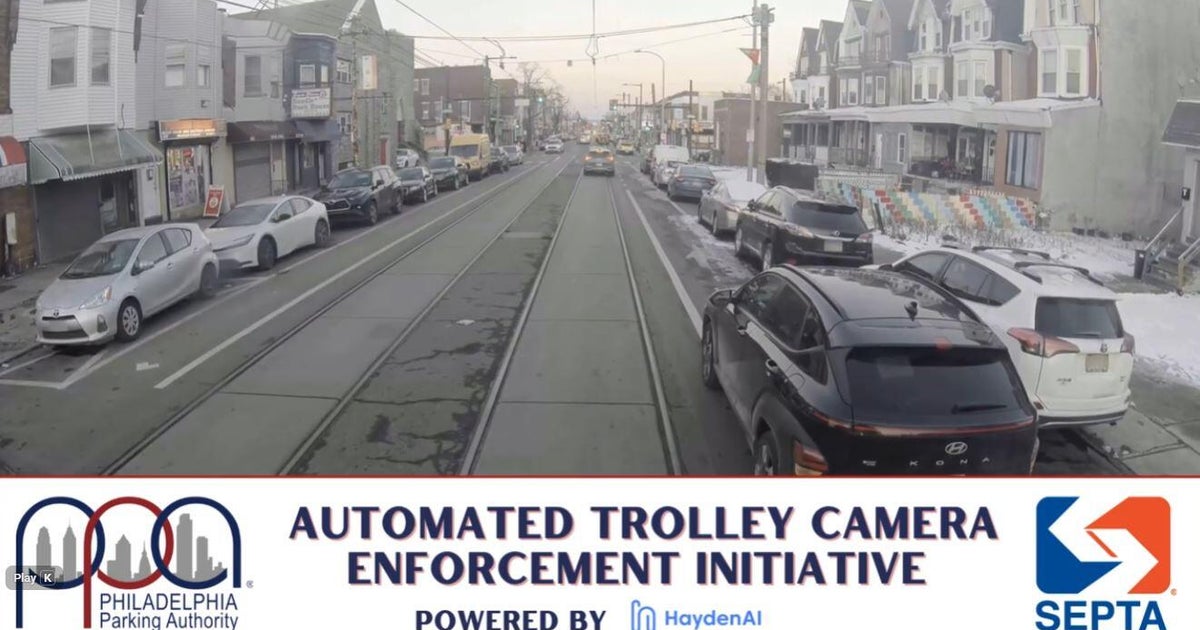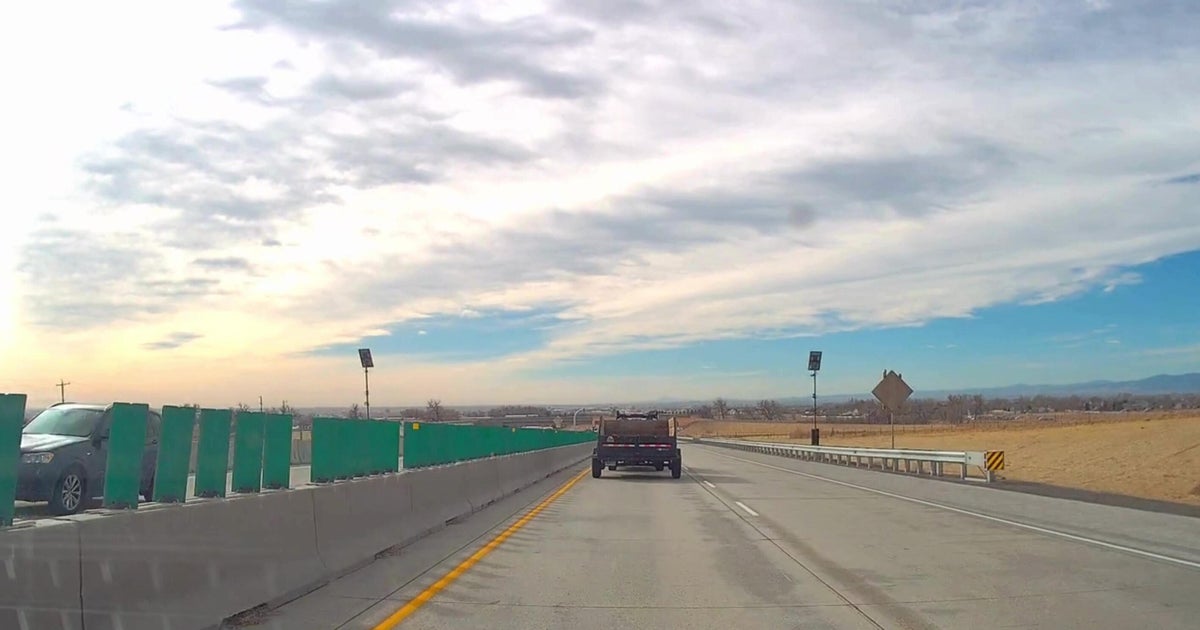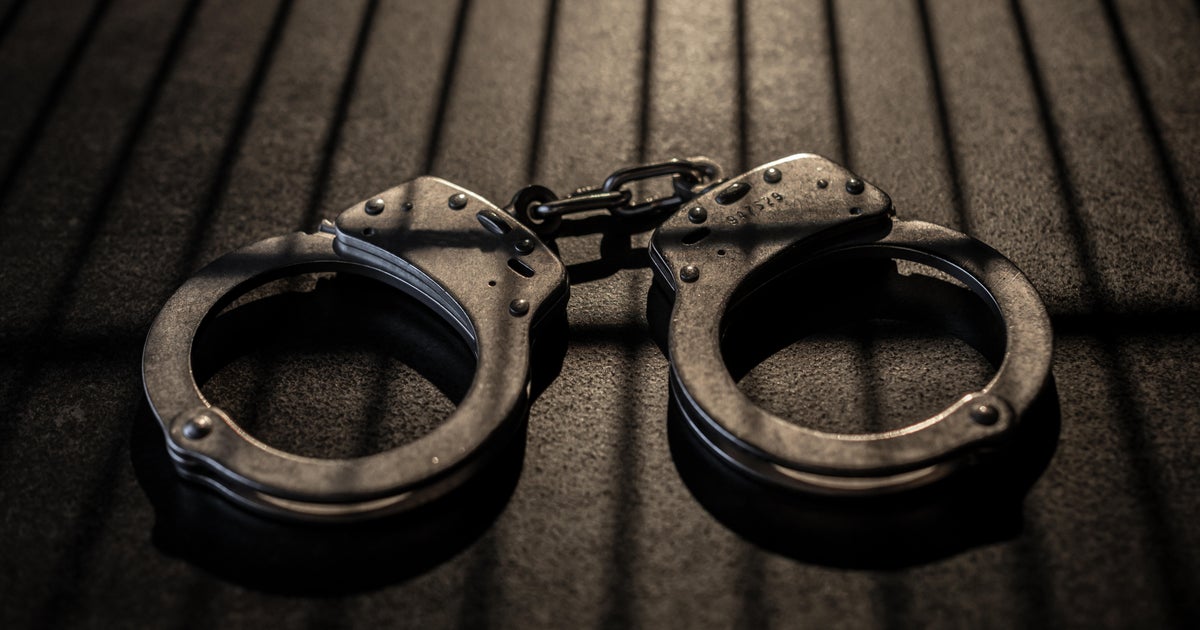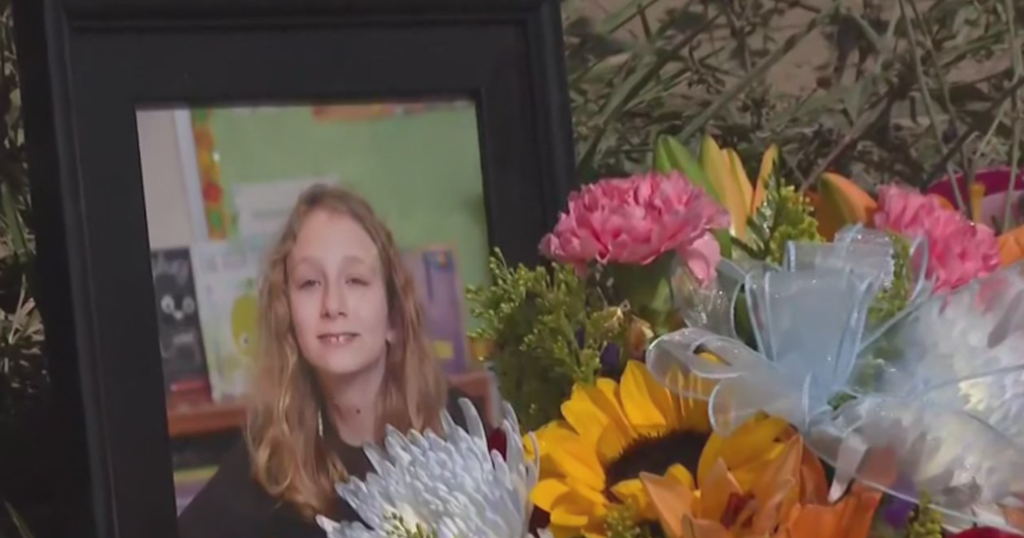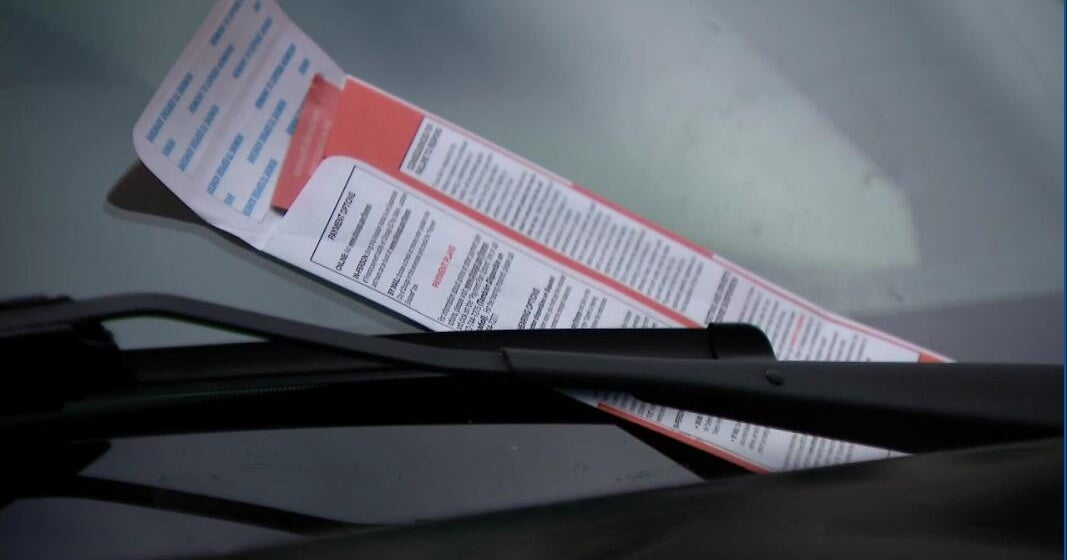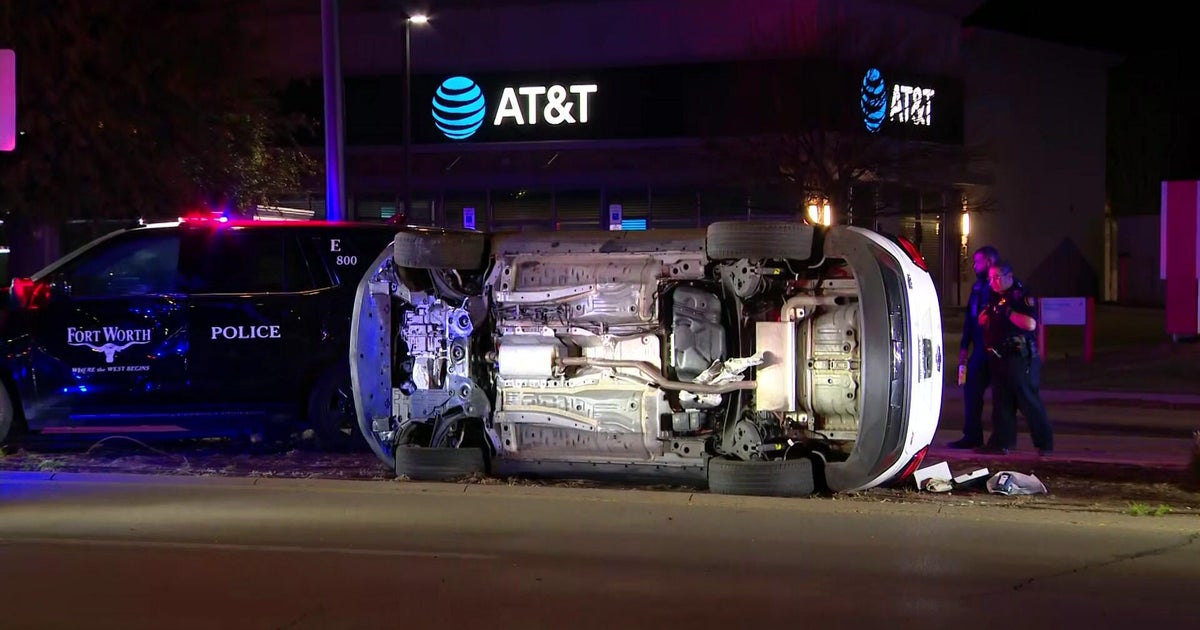Speed Camera Ticketing Change: Is It About Safety Or Money?
By Dorothy Tucker, Carol Thompson
CHICAGO (CBS) -- New numbers show how many tickets speed cameras are now churning out.
In March, drivers going as little as six miles an hour over the limit started getting fined.
The CBS 2 Investigators got their hands on data revealing in the first five months after the change, the city issued 1.5 million tickets. That's about the same amount the city issued in the previous four years combined.
That's not all.
CBS 2 Investigator Dorothy Tucker discovered the deadly crash numbers used for justifying the new rule are not what they appear.
Traffic Fatalities Increase
In 2019 and 2020, CBS 2 reported on deadly accident after deadly accident. Some were tragic hit-and-runs. Others were caused by excessive speed.
By October 2020, Mayor Lori Lightfoot began urging a major change in speed camera ticketing rules.
"What we've seen unfortunately over the course of this year is the number of speed-related accidents and deaths go up exponentially," she said.
By the end of 2020 – the stats became sobering. 139 people lost their lives in traffic crashes that year. A significant increase over the 96 people killed in 2019. The Chicago Department of Transportation (CDOT) publicly provided those numbers.
"We can't ignore that reality," said Mayor Lightfoot.
The Chicago City Council passed the new speed camera rule last fall. In March of 2021, cameras started flashing and fining drivers going as little as 6 mph over the speed limit – down from 10 mph over the limit.
"The hope is that by being more aggressive in citing people for speeding around schools, around parks, that we're going to actually lower the amount of traffic-related accidents and fatalities," Mayor Lightfoot said.
In that moment, Mayor Lightfoot connected the dots between traffic deaths and the need for changing the speed camera policy.
"It's clearly a public safety issue," she said. "The data, I think, really underscores that point."
But does it?
Traffic Fatalities In Children's Safety Zones
The CBS 2 Investigators took a deep dive into the data. We started by asking a question no one had bothered to ask before – how many traffic fatalities actually happened near speed cameras? We asked CDOT for those numbers.
What we found was eye-opening.
In 2019 – it's not 96 deaths, it's five.
In 2020 – it's not 139, it's 11.
All five deaths in 2019 were pedestrians. In 2020, three of the 11 killed were pedestrians. Two of those died in one incident.
Ald. Anthony Beale (9th) has been critical of the speed camera change all along. We showed him the new numbers.
His response?
"The administration wasn't being forthcoming and being truthful, you know, and the numbers were manipulated to fit the narrative," he said.
That narrative had a big impact on drivers like Xavier Manrique.
"I've never had speeding tickets, all right?" Manrique said. "Now, I've got four of them."
It also had a big impact on drivers like Ibie Ezekiel. She got eight tickets in one month – and that hurts, because she is a single mom of twins.
"I could feed them for a month," she said.
And then there's this – Chicago can only operate speed cameras within 1/8 of a mile from a school or a park. They're called Children's Safety Zones. The point is to protect children.
CBS 2 discovered another interesting fact when we analyzed the new CDOT data and traffic crash reports. Fatalities involving kids are rare in those Children's Safety Zones.
In 2019, one child died. On March 5, a 14-year-old boy crossing the street was hit by a semi turning from 51st Street onto Western Avenue.
In 2020, one child also died. On Dec. 23, a 12-year-old boy was killed in a crosswalk. A woman walking with him also died. They were victims of a tragic hit and run.
Traffic crash reports indicate speed was not a factor in the 2019 fatality. However, it was in the 2020 deaths.
Traffic Safety Solutions
"If you want to prevent crashes and save lives you need to slow vehicles down," said Kyle Whitehead. He is the Director of the Active Transportation Alliance. He says speed cameras aren't the only solution.
"It needs to be done in tandem with other things like redesigning streets," he said.
Redesigning them would involve removing traffic lanes, adding pedestrian islands, and increasing bike lanes. The point is to naturally slow drivers down without burdening them with fines they struggle to pay. He's critical of the city's adoption of those safety alternatives.
"It's happening right now, but from our perspective, it's not happening at a fast enough pace," he said.
Speed Camera Policy Battle: Safety Or Money?
Ald. Beale would also like to see City Hall move a lot faster.
At a September City Council meeting, he tried to force a vote to restore the threshold for fines to 10 miles an hour over the speed limit.
"I stress to you all once again, this has nothing to do with safety," Beale said at the City Council meeting. "This has everything to do with revenue, revenue, and revenue."
And the money is pouring in. From March through July--- the city fined drivers $45.6 million. That's more than double any recent year. The city hit its most recent high mark in 2016. That year, the city issued $22.7 million in fines.
Ald. Beale's attempt to restore the old rules failed due to a technicality.
So for now, drivers continue to get slapped with fines for going six or more miles over the speed limit.
The Mayor's office did not respond to criticism that she manipulated the facts to get Council to pass the slower speeding ticket rules. CDOT did – you can read that department's statement at the end of this story.
Did you get a ticket from a Chicago speed camera after March 1? We want to hear from you.
Email Investigative Producer Carol Thompson at cjthompson@cbs.com, call us at (312) 899-2250, or get in touch using the form below.
[contact-form to=cjthompson@cbs.com subject="CBS Chicago Speed Camera Investigation"][contact-field label="Name" type="name" required="1"][contact-field label="Email" type="email"][contact-field label="Phone Number" type="text"][contact-field label="" type="textarea"][/contact-form]
CDOT Statement:
"The change in the speeding threshold was implemented in response to an alarming increase in vehicle speeding and traffic fatalities. This change affects the City's 69 Automated Speed Enforcement (ASE) Children's Safety Zones, which are operational near schools when they are in session and children are present, and in parks during hours when they are open.
"Thirty-three more people died in traffic crashes in Chicago in 2020, a 28 percent increase over 2019, according to IDOT traffic safety data. These deaths reflect a national trend have occurred at a time when fewer cars were on the road due to the pandemic and City traffic data showed cars were driving 8-10 percent faster on average than at the same time in the previous year.
"The goal is not to issue tickets, but to encourage safer driving behavior and discourage speeding that is correlated with more severe injuries and deaths in traffic crashes. In order to avoid a speeding violation, drivers simply have to observe the speed limit.
"The fact that proportionately fewer fatalities occur in Child Safety Zones is evidence that ASE enforcement is an effective tool when it comes to deterring speeding.
"Under the authorizing legislation, Child Safety Zones are expressly limited to locations near schools and parks – but we believe that even when limited to these areas, ASE enforcement has a deterrent effect to speeding in a larger area than their immediate footprint.
"Incremental reductions in speed greatly increase the likelihood of avoiding death or serious injury in the event of a crash. According to federal traffic safety data, chances of a pedestrian surviving being struck by a car are 90 percent if hit by a car traveling 20 mph, 50 percent chance of surviving if hit by a car driving 30 mph and only a 10 percent chance of surviving being struck by a car driving 40 mph."
